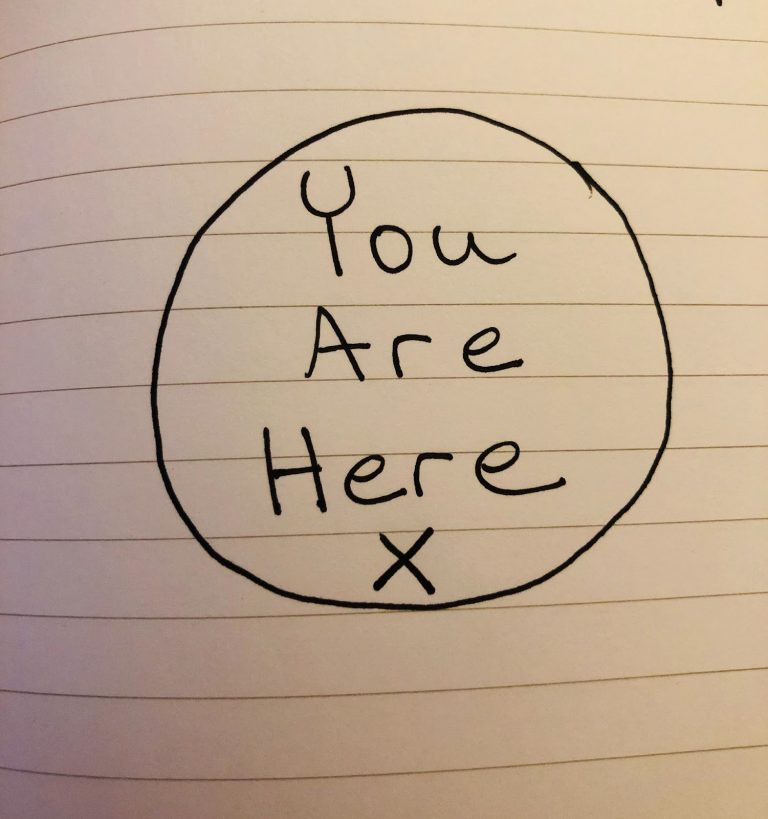Writing makes my stomach hurt.
By Laura Bee

I love writing. I’ve always wanted to be a writer. And I’m good at it. A few weeks ago, I landed a writing gig as an Editorial Intern for the Permaculture Women’s Guild. And with that gig came a flood of opportunities to publish my writing in a community of women whom I respect and admire. But those women also intimidate me, and a familiar anxiety is creeping in about sharing my work.
I have found great comfort and understanding in being open about this anxiety. For the most part, when I share my writing in a safe space, it is met with a flood of understanding and encouragement. However, the thought of my writing being scrutinized by those outside of these circles (and even those within) frightens me. When I’m writing, I’m conscious that I may be censoring myself. When I don’t censor myself, I’m conscious that people’s perceptions of me will change. Writing exhausts and exposes.
It also frees.
I feel like a new person each year, and I am deeply invested in self-reflection and self-improvement, but I am also steeped in stagnant self-condemnation, and that part of me says:
Don’t write. You’re not worth writing about. You don’t matter. You’ll never be a professional writer in this culture. You don’t even stand a chance.
With these thoughts pummelling my self-confidence, I recently bared my heart in a Facebook group, Permaculture Women, expressing my intense fear and anxiety about sharing my writing in public. I instantly received insightful feedback and empathy, and felt more supported and understood with each comment and piece of advice.
These responses contrasted with my inner critic, which tells me everything I write is terrible, and that I should be spending my time doing something that makes a difference. When I indulge in these self-fulfilling thoughts, the negativity cycle spins ad infinitum bringing me to the conclusion that this pattern is completely useless, and something that I must slay, Buffy style. I am aware that my negative self-talk could become “a self-fulfilling prophecy,” because if I give credence to them, I will stop expressing, writing and sharing. I will try to fill a niche I don’t fit into, just to prove my browbeaten brain correct.
Because their words were so helpful to me, I’d like to share some of the advice I received from the women who responded to my post. I’ve organized the tips into central themes and added my own comments, so that the next time I get anxious about sharing my writing, I can refer back to this article and remember that I’m not alone in this. There is a huge community of women who struggle to write, publicise and receive praise for their work. Together, we can lift each other up, share each other’s stories, and thrive.
Understand that doubts are normal.
Elizabeth Bendorf, Sustainable grower and mother of five, expressed this clearly:
“I have had these same anxieties while attempting to establish my professional career, and it has measurably dampened my success. I empathize entirely. But the truth is, this is what I do. It’s what I know, and the only thing standing between me and legitimacy is my own doubts. If the spotlight is on me for a second while I do my life’s work, it’s because it was well earned. Plus there is always some soil to bury my head in.”
I appreciate Elizabeth’s mixture of vulnerability and confidence. Women are taught to be modest and to stay small, or even to shrink. It takes courage to say: I deserve this. I also love that she brings it back to nature. I take solace in the fact that I can plant potatoes or harvest some salad leaves if my writing (and the response to it) overwhelms me. Elizabeth’s response normalised these doubts, and encouraged me to branch out my thinking. I’ve been asking myself “why do I doubt?” and contemplating imposter syndrome. I know that doubts can be there, without necessarily limiting what I do. Grappling with these doubt demons indubitably takes time, patience and a daily practise. But it can be done.
Following on from this theme came Maddy Harland, editor of Permaculture Magazine and author of Fertile Edges:
“Writing is like taking off all your clothes and going into your local town. It’s a very difficult thing to do — especially when you are greeted by relative silence — and it makes us all feel very vulnerable. A sensible response, I would say!”
Here Maddy reminded me that it is, once more, completely normal to feel unpleasantly exposed. I think, when I get super stuck in a pattern of thinking or doing, I can feel alone in my feelings and experience of the world. This is why it’s so important to share our work in spite, or even because of, our fear. Not only does it unleash our creative energy and talent, but our stories act as an example to other women who are struggling with these fears and anxieties. What’s more, if we come together to collectively talk about this struggle, and offer each other advice and understanding, we can challenge the trauma-induced dragons that thwart us from thriving, personally and professionally. So, let’s get naked!
It is also important to acknowledge the ever-pervasive presence of patriarchy in the publishing industry. This is starting to be challenged, but change is slow, and we shouldn’t let it deter us from trying, especially when, as women in the permaculture community we have access to women-run publications like Permaculture Magazine, Permaculture Women Magazine, and the publishing platform Permanent Publications.
Stop caring what others think.
Permaculture author Jessi Bloom, author ofPractical Permaculture and Creating Sanctuary: Sacred Garden Spaces, Plant-Based Medicine, and Daily Practices to Achieve Happiness and Well-Being shared:
“I experience this continually — even after writing several books. I think it comes from being criticized/abused by people close to me. It is so hard to push through those feelings, and one way I’ve managed to do it is to know that my voice has a place in the world. There are always going to be haters, and people who judge us, but life gets a whole lot easier when you don’t care what others think.”
I feel this, too. Several people in my life have undermined and bullied me. I’m sure many women reading this could say the same. We have to constantly remind ourselves (and each other) that our voices are worthy of being heard, and that we are worthy, despite what others have said and how we have been treated. If you’re reading this, I’d appreciate any tips on how to stop caring what others think, and pointers on how to develop a thicker skin.
Reframe failure.
Here’s life coach Woosi Wildwood’s advice on reframing failure:
“One thing that’s helped me is reframing failure. I either succeed, or I learn. That makes it easier to see things as an experiment…”. This quotation is a “variation and extension of a Nelson Mandela quote that inspired” Woosi: “I never fail. I either win or learn.”
This advice is something I think we could all ruminate on, for our writing and our lives. It is easy to give up, harder to pick up the pen and carry on. I imagine when we see life as a learning process, the self-hatred starts to peel away, and motivation and determination slowly unchains itself.
Develop healthy writing habits.
Establishing good writing habits such as writing every day (Kt Shepherd), looking after our mind and body, avoiding burnout and turning off comments (Nicole Vosper) were also pieces of advice I found useful, and will use. Heather Jo Flores reminded me that I do not have to please everyone; neither do I owe anyone an explanation. This advice was timely, as I recently received some annoying responses to my articles. I have since concluded that attempting to change stubborn minds, or educate people who do not want to listen, simply drains too much energy. I would rather use my writing to aid my healing process and to help and empower others to do the same.
We can use permaculture to help us begin, improve and maintain momentum as writers. We can listen to published authors such as Looby Macnamara, who provides a ton of helpful resources in her book People and Permaculture, offering a clear framework for creative pursuits. I found this video — What’s in my writing basket at the moment — inspirational, especially as a haphazard writer with papers and folders here there and everywhere! In the video Looby describes her process for “collecting and harvesting” wisdom, designs and insights.
Heather Jo Flores, who wrote Food Not Lawns & Naked Lady Soup, founded the Permaculture Women’s Guild and Permaculture Women magazine, and provides coaching and online classes for women writers, has really pushed me to expand my edges and move out of my comfort zone. She believes that writing for an audience, being vulnerable, sharing our stories and working through fear and anxiety about writing is a fundamentally radical act, and that the stories we are most afraid to share are the ones we most need to write. “Write towards the fear, the fear is your compass.” she says. “The more scared you are, the more you should write. Just write and write and write. Write about that feeling. Then write about the next feeling. Write through it all, and one day you’ll emerge from the fear — as a writer.”
So write I shall.



